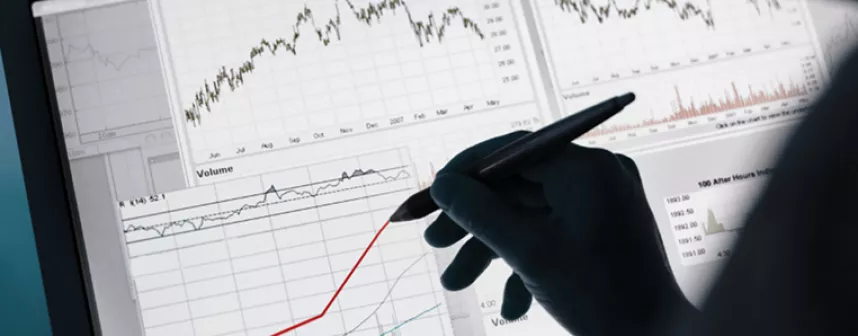Making better use of research data
May 24, 2018
Data volumes are becoming ever more extensive and complex; they are heterogeneous and widely dispersed: "big data" is also an important topic for the environmental sciences. The German Federation for Biological Data (GFBio), a project funded by the German Research Foundation and involving Jacobs University Bremen, aims to improve the management of research data. The goal is to make the data usable in the long term and thus strengthen science and the exchange of information among scientists.
Ever more data is accumulating, not only in astronomy and physics, but also in environmental research and biology, climate change research being a case in point. On the one hand, raw data is generated during the research process itself and, on the other hand, metadata that describes under which conditions and with which methods the research data was generated.
Data from publicly financed research should be widely and freely accessible, but in fact hat is only partially the case. This is where the GFBio project comes in. 19 partners from throughout Germany participate in the project, including universities, museums, and molecular-biological archives. The project participants are committed to the principles of "FAIR Data". In this context, FAIR stands for “Findable, Accessible, Interoperable, and Re-usable”.
"We also want to raise awareness of better data management and create a culture of active, open access to information," says Frank Oliver Glöckner, Professor of Bioinformatics at Jacobs University Bremen. "Scientists from all disciplines should be able to access all data easily, quickly and without great effort in order to achieve excellent results. The task of the Jacobs University team is to prepare and publish molecular and environmental data in the European nucleotide database, ENA, and the World Data Center PANGAEA.
GFBio serves as a national contact, information and consulting center for all questions concerning the standardization and management of biological research data throughout the entire life cycle of the data, i.e., from data collection and archiving to publication. During the conception and implementation phase of the project, the data portal www.gfbio.org was created. The third phase, which begins in the summer, will be primarily dedicated to improving the services offered in cooperation with the scientists, and to building a sustainable research-data infrastructure. To furnish this process with a legal structure, the non-profit organization GFBio e.V. was also established.
The project has a total volume of 4.3 million euros and is coordinated by MARUM - Center for Marine Environmental Sciences at the University of Bremen. Jacobs University will receive 270,000 euros over the next three years.
For more information:
www.gfbio.org
https://twitter.com/gfbio_project?
